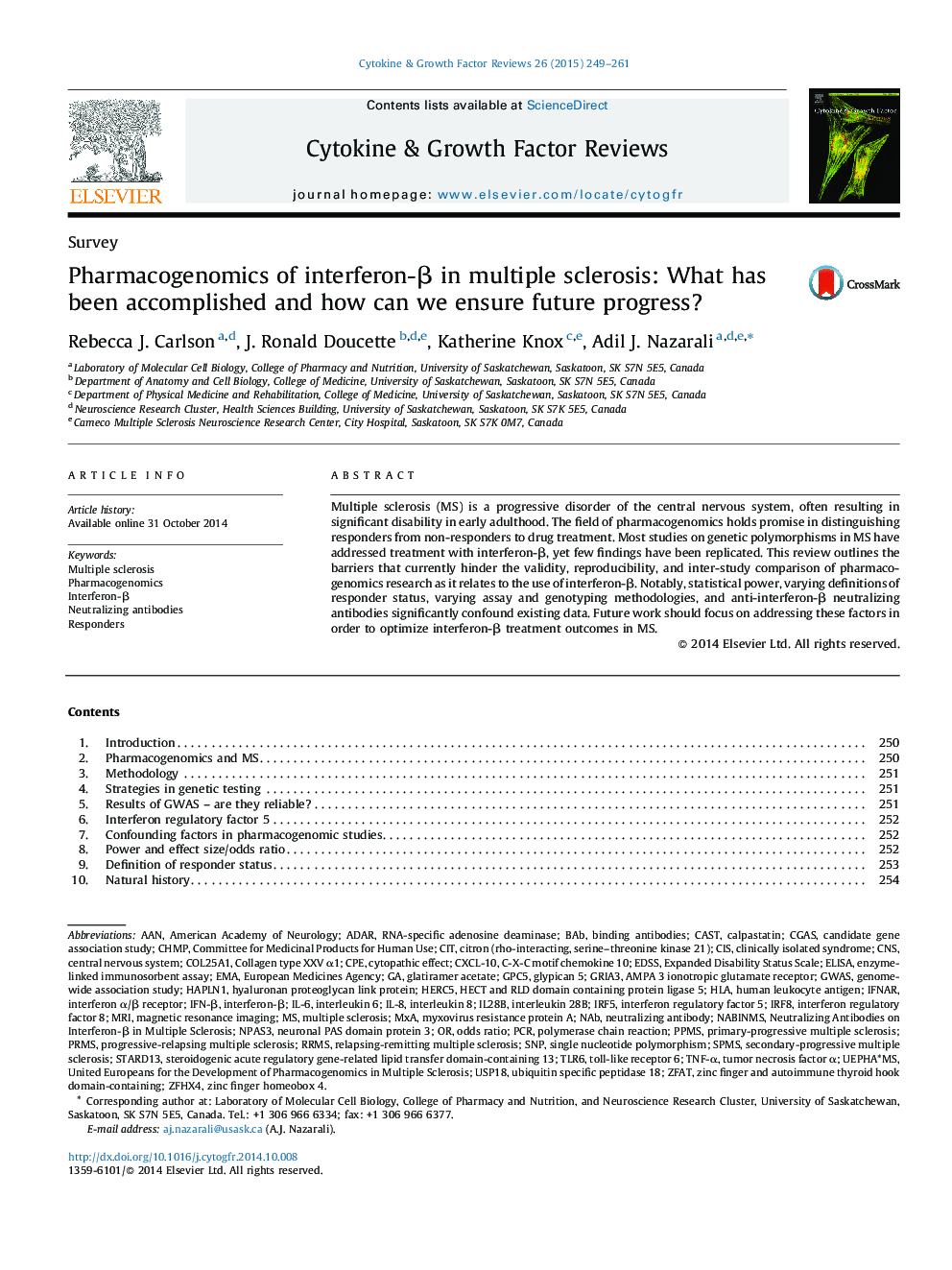| کد مقاله | کد نشریه | سال انتشار | مقاله انگلیسی | نسخه تمام متن |
|---|---|---|---|---|
| 2170508 | 1093381 | 2015 | 13 صفحه PDF | دانلود رایگان |

• Key challenges in predicting responders to interferon-β are outlined.
• Barriers to reproducibility of pharmacogenomics research as it relates to interferon-β.
• Recommendations for standardized methodology for future pharmacogenomics research.
• Table summarizing significant genetic predictors of response to interferon-β.
Multiple sclerosis (MS) is a progressive disorder of the central nervous system, often resulting in significant disability in early adulthood. The field of pharmacogenomics holds promise in distinguishing responders from non-responders to drug treatment. Most studies on genetic polymorphisms in MS have addressed treatment with interferon-β, yet few findings have been replicated. This review outlines the barriers that currently hinder the validity, reproducibility, and inter-study comparison of pharmacogenomics research as it relates to the use of interferon-β. Notably, statistical power, varying definitions of responder status, varying assay and genotyping methodologies, and anti-interferon-β neutralizing antibodies significantly confound existing data. Future work should focus on addressing these factors in order to optimize interferon-β treatment outcomes in MS.
Journal: Cytokine & Growth Factor Reviews - Volume 26, Issue 2, April 2015, Pages 249–261